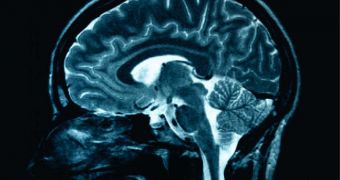One of the most important things that allows us to recognize voices is noticing how each person pronounces words in a subtly-different way. Researchers have now determined that people who suffer from dyslexia do not have this ability, making it harder for them to recognize other voices.
This is what experts refer to as a phonological impairment. In a new study, scientists at the Massachusetts Institute of Technology (MIT), in Cambridge, decided to investigate the matter in more detail, in hopes of achieving a breakthrough.
Doing so, the thinking went, would lead to the development of new therapies or drugs to fight this condition, which is especially debilitating to children. Adults can develop dyslexia as well, and they generally tend to exhibit a lower quality of life than similar peers.
Dyslexia is in fact an entire range of conditions that are characterized by learning disabilities. These disabilities impair sufferers' fluency or comprehension accuracy in being able to read and spell.
The disease can additionally manifest itself as a set of difficulties covering phonological awareness, phonological decoding, orthographic coding, auditory short-term memory, and/or rapid naming.
“Even though all people who speak a language use the same words, they say those words just a little bit differently from one another – what is called 'phonetics' in linguistics,” MIT expert and study researcher Tyler Perrachione explains.
He adds that the field of phonetics is focused on analyzing and understanding the physical properties of speech. This innate ability that we have is of great aid to us, because it allows us to distinguish between separate voice, when working in tune with other senses as well.
Phonetic differences can also tell us whether a muffled voice in the background is speaking in a foreign or a familiar language. Perrachione is a PhD student in the MIT Department of Neuroscience.The US National Science Foundation's (NSF) Directorate for Education and Human Resources funds his work.
“Our results are the first to explicitly link impairment in reading ability to impairment in ecologically processing spoken language,” the researcher adds. He conducted the work with colleague Stephanie Del Tufo and MIT research advisor John Gabrieli.
“The results suggest that the source of a phonological deficit might be in dyslexic individuals' difficulties learning the consistent properties of speech sounds as spoken by an individual talker,” he goes on to say.
Details of the investigation appear in a paper entitled “Human voice recognition depends on language ability,” which is published in the July 28 online issue of the top journal Science.
“Lots of research has shown that individuals with dyslexia have more trouble understanding speech when there is noise in the background,” Perrachione adds.
“These results suggest that trouble following a specific voice might be part of the cause. Teachers and other educators can be sensitive to this during classroom instruction where noise from other classmates might make it disproportionately difficult for children with dyslexia to follow what is going on in a lesson,” he concludes.

 14 DAY TRIAL //
14 DAY TRIAL //